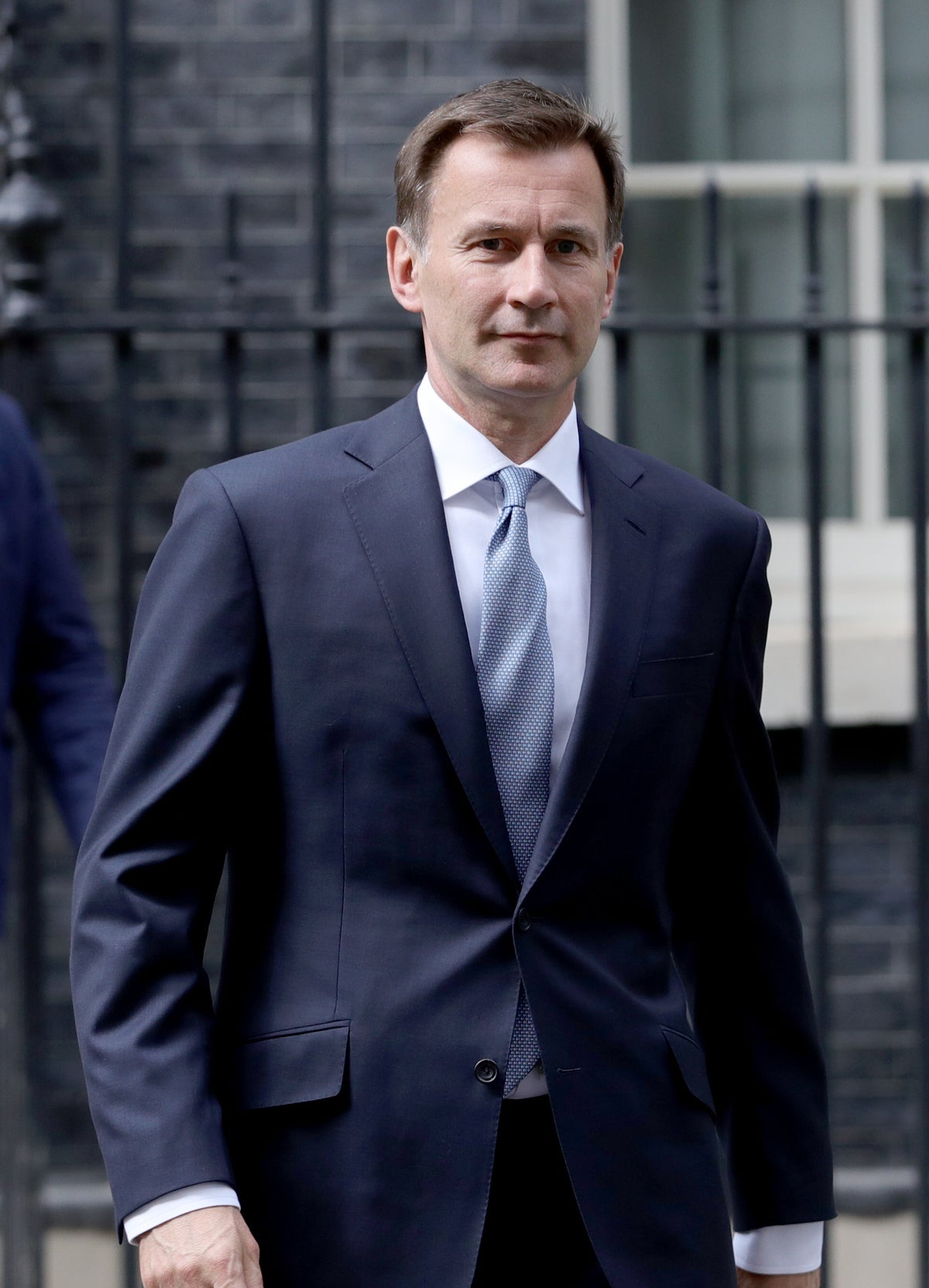
Tory MP Jeremy Hunt has told a public inquiry that institutions and the state sometimes “close ranks around a lie”.
Giving evidence to the Infected Blood Inquiry, the former health secretary said there had perhaps been “memory illusion” regarding the contaminated blood as people tried to remember things “as they would like them to have been, rather than as they actually were”.
The inquiry is examining how thousands of patients were infected with HIV and hepatitis C through contaminated blood products in the 1970s and 1980s.
About 2,400 people died in what has been labelled the worst treatment disaster in the history of the NHS.
At the hearing on Wednesday, counsel to the inquiry Jenni Richards QC referred to a document which sets out the role of the Public Health Directorate within the Department of Health.
I'm afraid it's perhaps an example of what has been described as a kind of memory illusion, but at a departmental level— Jeremy Hunt
She said: “Under the heading Key Facts there’s a number then of points relevant to the division’s areas of responsibility and the second is this: ‘NHS Blood and Transplant supplies over two million units of blood to hospitals in England and North Wales each year.
“‘The risk of infection from transfusion is now extremely low. During the 1970s and 80s, hepatitis C and HIV infection from contaminated NHS blood was a problem before it was possible to screen donors and make products safer. A number of funds provide support for those affected’.
“Now, I’m conscious, Mr Hunt, you almost certainly didn’t see this document when you became secretary of state. But it would appear that the briefing that is being given to new ministers in relation to this issue isn’t revealing any concerns about what had happened.
“The sentence beginning ‘During the 1970s and 80s…’ saying it was a problem before it was possible to screen donors and make products safer – an inference from that might be ‘well, this was just an unavoidable problem’.”
Mr Hunt, who was health secretary from September 2012 to July 2018, replied: “I mean, that briefing is wrong. And it shouldn’t say that. And I’m afraid it’s perhaps an example of what has been described as a kind of memory illusion, but at a departmental level, where the people collectively try and remember things as they would like them to have been, rather than as they actually were.
“But I think it was a bad briefing for ministers, because at the very least ministers should be aware as politicians that this is contentious and this is disputed by families, but I’m afraid it tries to suggest that the issue is closed when it’s not and it shouldn’t have done that.”
Once you get five years on, 10 years on, people forget that there was even a moral dilemma, and the account of history changes— Jeremy Hunt
Mr Hunt, who became foreign secretary in 2018 for a year, said it is apparent from documents that the Government and civil service did not have an open mind on the issue and “had decided that the state in the 1970s and 80s had done the best it could in the circumstances, a very sad thing had happened, compensation had been put in place, matter closed”.
He said the way the scandal is referred to in documents suggest an “institutional closing of ranks” which he suggested would have probably happened in stages, and largely no one was trying to do the wrong thing.
“And then what happens is people think, ‘well, you know, we need to protect those people who are trying to do the right thing’. And then, once you get five years on, 10 years on, people forget that there was even a moral dilemma, and the account of history changes,” he said.
Mr Hunt told the inquiry: “That, by the way, was why Andy Burnham, who I know has given evidence, was advised not to meet the Mid Staffs relatives, something that they are angry about to this day.
“And I’m sure in retrospect he wishes that he had, but officials said no, it’s not a good use of your time and you’ll get drawn into it.
“It’s why, by the way, in a completely different context, when I became foreign secretary, I was initially advised by the Foreign Office not to meet Richard Ratcliffe, the husband of Nazanin Zaghari-Ratcliffe, because there was a lot of suspicion about how he might try and use the meeting.
“And so, I am afraid that institutions and the state close ranks around a lie sometimes. And I think that’s what’s happened in this case.”
Victims have long believed the extent of the contamination scandal was covered up.
In one example suggesting the Government knew the risks, a letter to the Department of Health in 1983 from the Communicable Disease Surveillance Centre in London called for US blood products to be withdrawn over links to HIV that needed examining properly.
Labour former health secretary Mr Burnham has described the scandal as a “criminal cover-up”.







